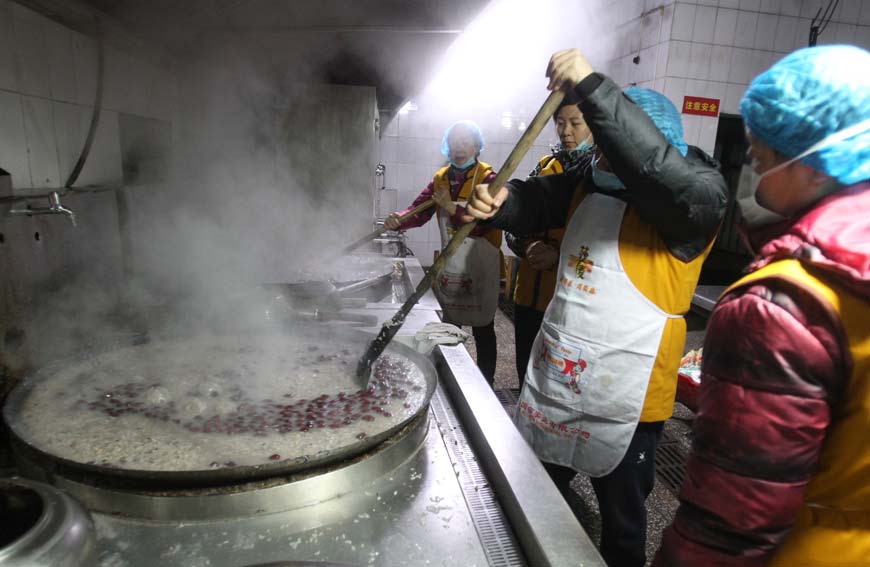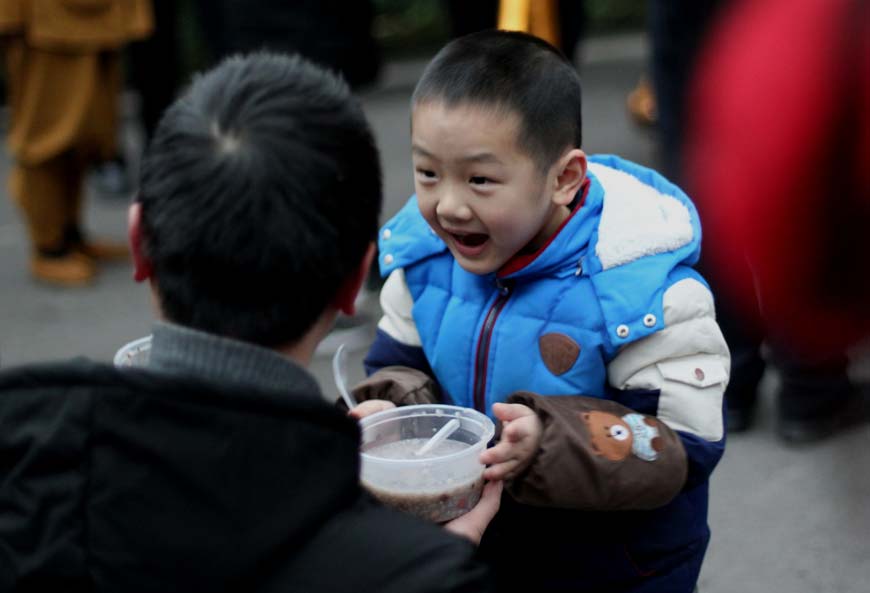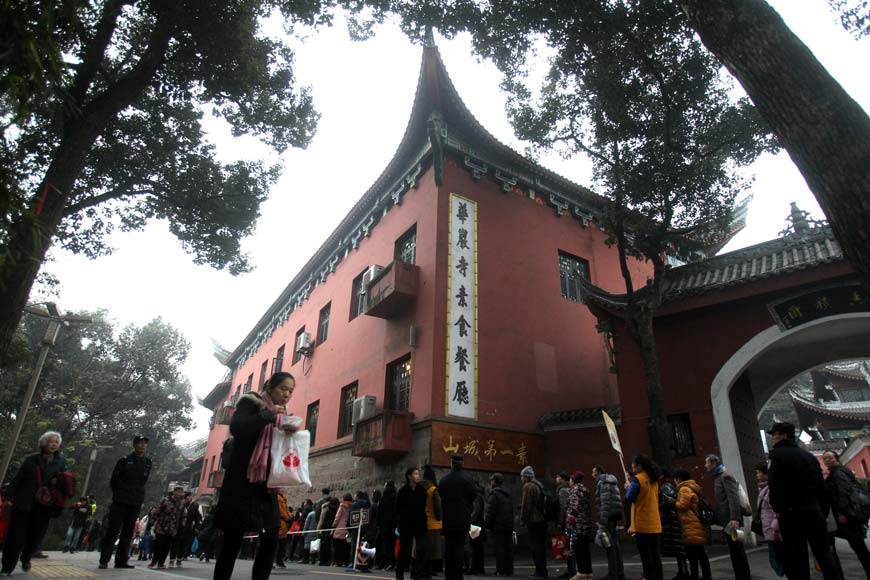As the old saying goes that “there’s no hurry, the Spring Festival comes after the Laba Festival,” Chinese people celebrate the Spring Festival several days after the Laba Festival. It is a traditional Chinese holiday to worship the ancestors and deities and pray for harvest and good fortune. In China, it is customary on this day to enjoy Laba congee and soak Laba garlic. Traditionally, the Laba congee, usually sweetish, contains eight kinds of fresh grains, melons, and fruits harvested at that year. However, people in some regions prefer salty Laba congee so that they add such raw materials as white radish, cabbage, vermicelli, kelp, tofu, as well as rice, millet, mung beans, cowpeas, peanuts, and Chinese dates.
In Chinese character, “腊” (la) has three connotations: First, replacement, signifying the new takes the place of the old (recorded in the Book of Sui · Rites); second, hunting animals and making them sacrifices to deities because the “腊” has “月” (meaning the meat) as the radical, signifying sacrifice offerings with meat in winter; third, removing diseases and welcoming the spring, since the pre-Qin period, people has worshiped ancestors and deities and prayed for harvest and good fortune on Laba Festival.
The changes of time have endowed Laba Festival with more prosperous meanings, and celebration activities on that day are more and more gorgeous.
For many people, enjoying Laba congee, or seven-ingredient and five-taste porridge, is of the highest importance on Laba Festival. This millennium-old tradition started from the Song Dynasty when people from all walks of life made and had Laba congee. In the Qing Dynasty, the tradition of enjoying Laba congee was still especially popular. In the folk, every household makes Laba congee as the sacrifice offering to ancestors, must-have food enjoyed when getting together, or gift to friends and relatives.
Besides Laba congee, which is familiar to all, other popular traditions on Laba Festival include worshiping ancestors, enjoying Laba noodles, soaking Laba garlic, pickling Laba beans, etc.



